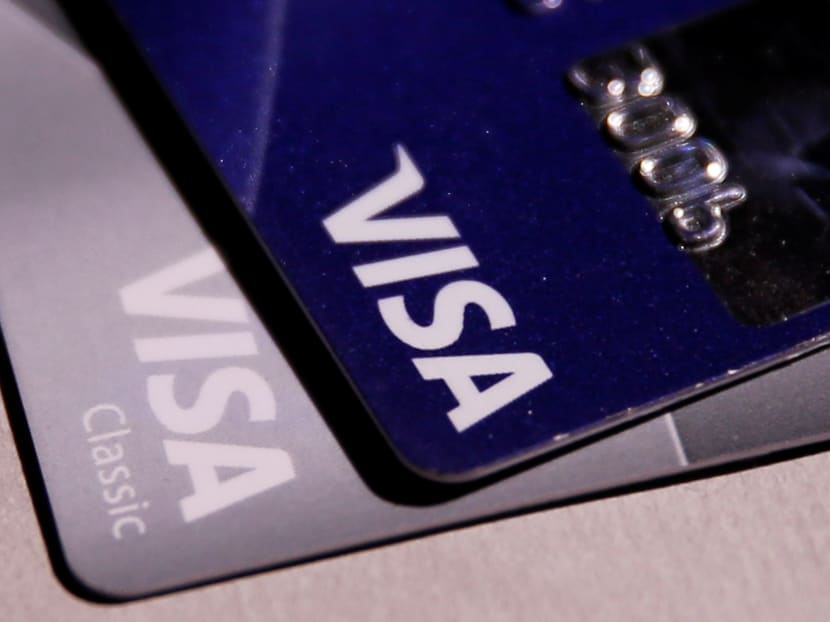Contesting a credit card charge
If you have a debit card or a credit card, you may find an error such as a charge from an unknown store in Eastern Europe or a wrong amount charged by a retailer in Singapore. When you find an error, it’s important to act quickly to dispute it.

Reuters file photo
If you have a debit card or a credit card, you may find an error such as a charge from an unknown store in Eastern Europe or a wrong amount charged by a retailer in Singapore. When you find an error, it’s important to act quickly to dispute it.
CHARGEBACKS CAN PROTECT CONSUMERS
While the percentage of fraudulent transactions on credit cards is quite low overall, at less than 0.1 per cent, software firm ACI Worldwide found in its Global Consumer Fraud Survey last year that more than one in three Singaporeans had experienced card fraud in the past five years.
Fraud isn’t the only problem cardholders may experience, of course. You may have ordered merchandise online that didn’t arrive, for example, or the item you purchased may be defective.
In cases like these, your bank can often help by charging back the transaction to the merchant. As the Association of Banks in Singapore (ABS) explains, a chargeback occurs when a card-issuing bank initiates a reversal against the merchant for violation of card acceptance procedures or a failure to fulfil the conditions of the transaction. Disputes can occur when a cardholder did not authorise a transaction or encounters issues with the goods or services purchased.
Since transactions can occur anywhere in the world, the procedures for chargebacks usually follow international guidelines from MasterCard, Visa and other card schemes. These rules are complex, with the MasterCard Chargeback Guide 2016 alone being a full 419 pages.
Along with those international rules, cardholders have some local protection as well. Following widely-publicised incidents when cardholders lost thousands of dollars in what they claimed were fraudulent transactions, banks here agreed in 2009 on liability for unauthorised transactions on lost or stolen cards. The banks agreed to limit liability to $100 before the loss is reported, as long as the cardholder has not acted fraudulently or negligently and reports the loss in a “timely” manner.
HOW TO DISPUTE A CHARGE
The first step in disputing a transaction is to review your credit card statement regularly so that you can contact your bank quickly. A surprising number of consumers don’t review their statements and may end up paying for incorrect charges. If you wait more than a month or so to dispute a transaction, those voluminous rules from MasterCard or Visa say that it may be too late for the bank to help.
If you find an error on a transaction, the next step is to contact the merchant where you made the purchase. If the merchant made a mistake, they should correct the error so that you don’t have to pay for it.
If there is a fraudulent transaction that you don’t recognise or if the merchant won’t help, it’s time to call the bank. Bank staff will ask for details about the transaction so they can decide whether they can do a chargeback. They may also ask for a letter, a copy of your credit card receipt, or other documents to strengthen your case, which is why it is important to keep a record of your purchases. Once they have the information, they’ll review the dispute and decide whether they can charge back the transaction.
While many banks are quite helpful, some cardholders have had less positive experiences. As one blogger wrote on HardwareZone, “customer support officers in the banks will tell you that they cannot do anything to help you get your money back from the errant merchant. The reason is simply because chargebacks cost the banks on both sides of the dispute, time and money.”
The key is to be persistent. As travel columnist Christopher Elliott writes, disputing a card charge is a more of an art than a science. If there is clearly an error and an agent at a bank says they cannot help, it can be worth talking with a superviser who may be able to assist.
If a chargeback is possible, some banks will refund the money immediately, while others may wait until the dispute is fully resolved. ABS advises that full resolution of a dispute can take 4-12 weeks.
While many chargebacks are correct and the cardholder simply receives their money back, it’s possible that the transaction is actually valid. Some cardholders claim a transaction is fraudulent when it’s not, for example, so merchants have an opportunity to present their side of the story. Merchants will work with their bank, following the rules in the MasterCard or Visa guides, to show why the transaction is valid. If that happens, your bank will usually contact you to explain what happened and then may charge you for the transaction.
While cardholders who still believe they are correct can talk further with the bank, they may eventually have little recourse. Although the Banking (Credit Card and Charge Card) Regulations here explain how banks should process card transactions, there is no equivalent to the Fair Credit Billing Act in the United States that protects cardholders. To get some extra help, though, cardholders could ask the Consumer Association of Singapore (Case) for assistance if they still believe their dispute is valid.
PROTECT YOURSELF
The good news is that you can often get your money back if there’s fraud or an error on your credit or debit card. You’ll need to do your part, of course, by reviewing your statement, contacting your bank and providing the information they need.





